| Vintage Pulp | Feb 13 2021 |

Will His Majesty be cleaning the bathroom today? Because His Majesty's wife will not.
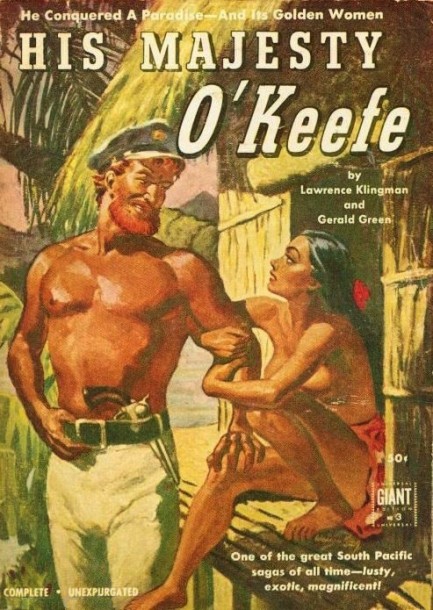
We've spent some time in tropical countries, which makes it hard for us to resist books with tropical settings. The above, His Majesty O'Keefe, is amazingly obscure considering it was made into a 1954 film by Warner Bros. starring Burt Lancaster. What you get here is a fictionalized account of actual Irish American roustabout as David Dean O'Keefe, who in 1870 flees a murder charge in Georgia by sailing away to the other side of the world. He ends up on the island of Yap, then part of Spanish East India, today part of Micronesia, and establishes himself as a respected copra trader. Other South Seas books tend toward irony and tragedy, but here O'Keefe achieves amazing success. From Yap he expands his trade to other islands, and becomes known as the King of Yap, the Monarch of Mapia, and the Sovereign of Sonsorol.
In addition, he's an enlightened type. We don't know if that part is true, considering the book was written nearly a lifetime after the real O'Keefe's death, and considering the authors Lawrence Klingman and Gerald Green seem to have a bone to pick with Germans, who are portrayed as racist brutes. We can understand that. It was published only five years after World War II, but weren't all colonials racist brutes? We suspect O'Keefe is portrayed better than he really was in order to create contrast with the hated Germans. The real O'Keefe ran Confederate cargos through Union naval blockades during the U.S. Civil War, so how enlightened could he have been? But it's possible he was opportunistic more than he was political. Or the blockade busting could have been pure fabrication. O'Keefe said so when investigated in 1867, but then what would he say?
But whatever—we're talking about the book, and we'll take the respectful and equality-minded character here over the bigoted heroes that tend to dominate novels set around this period. We're still reeling over Slave Ship. We won't go into how Klingman and Green conclude their story. We'll just say the result is pretty entertaining. We suspect the movie version is g-rated by comparison, and for sure it will be a whitewash historically, but we're going to look for it and have a watch. It has Lancaster, after all, and he's one of the reliable indicators of quality in vintage cinema—he's no Bogart or Cary Grant, mind you, but his movies tend to be good. We'll report back. His Majesty O'Keefe was originally published in 1950, and this Universal Giant edition came in 1952 with cover art by Warren King.
| Vintage Pulp | Apr 1 2014 |

The only better thing than vintage sleaze is double the vintage sleaze.
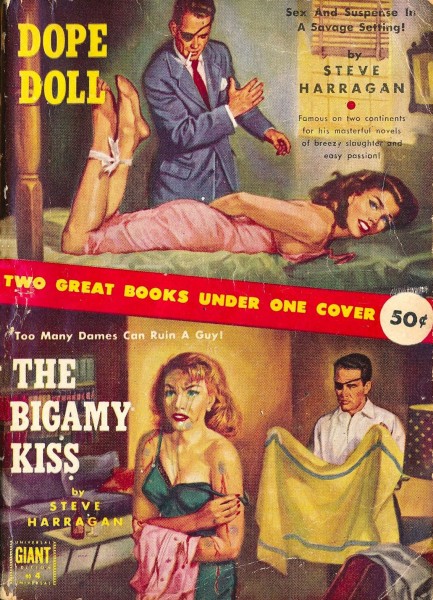
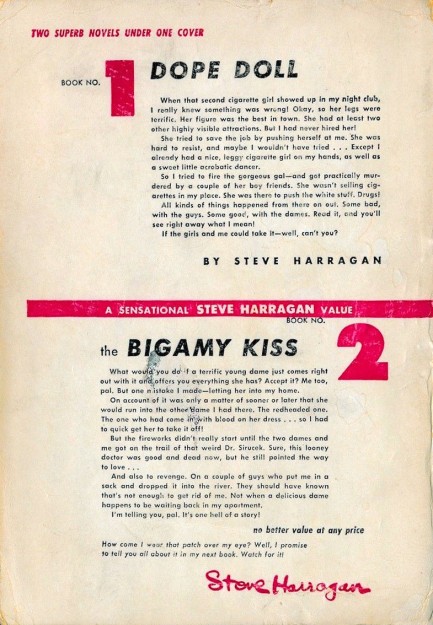
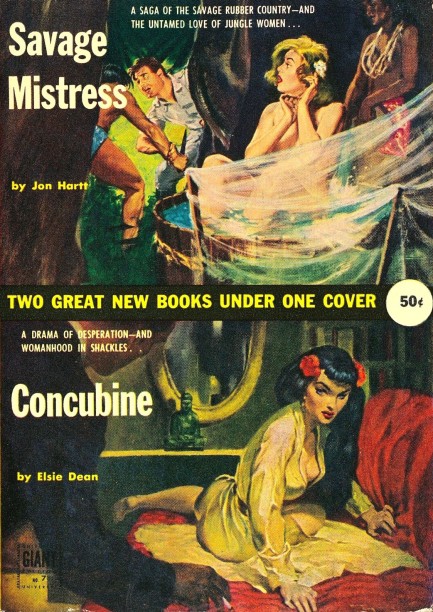
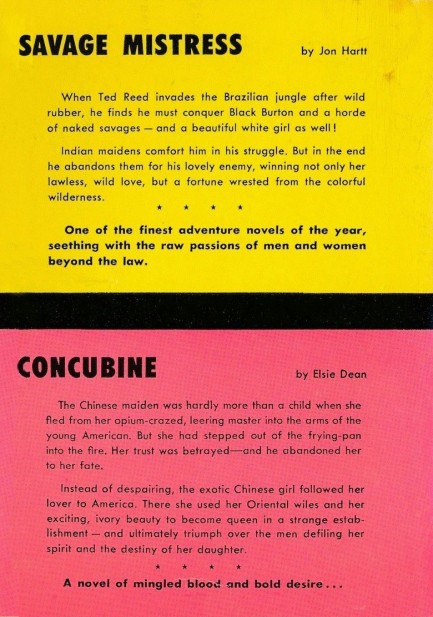
Above, two cool double novels, front and back covers, from Universal Publishing & Distributing Corp., part of their Giant series, editions 4 and 7, early 1950s. Since we have two double novels here, it's actually four times the vice, but you get the idea. Steve Harragan, by the way, is both the author and main character of Dope Doll and The Bigamy Kiss, as well as other books, and was actually a Brit named William Maconachie. We’ll get back to him. The art here is uncredited.
| Vintage Pulp | Jun 26 2009 |

The way you're throwing yourself at this stranger, I'm guessing you and your cousin Cletus have called it quits.
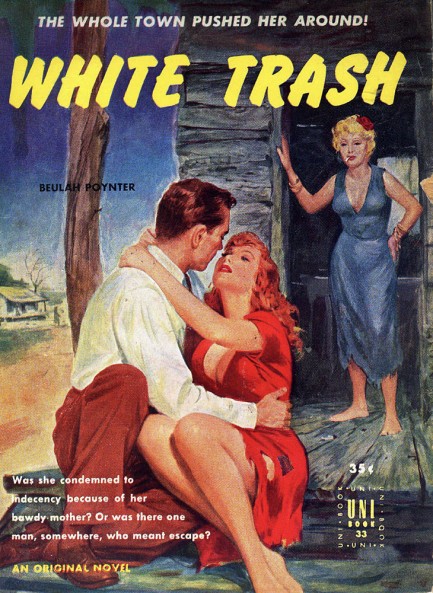
White Trash appeared in 1952 from Universal Publishing and it was written by Beulah Poynter, who in addition to authoring many novels was a notable silent film actress and playwright. Obviously, this tale is from the oversexed hicks bin, with the required boozing and fighting intermixed. The story features a moonshining mother, Mattie, and her precocious teenaged daughter, Hagan, who are equally beautiful, popular, and available. But eventually a line is crossed and the community gets up in arms about these two. Think of the story as cut rate Erskine Caldwell with pretensions to Faulkner, and a violent climax tacked on. It was Poynter's last novel. The cover artist is uncredited.




































































